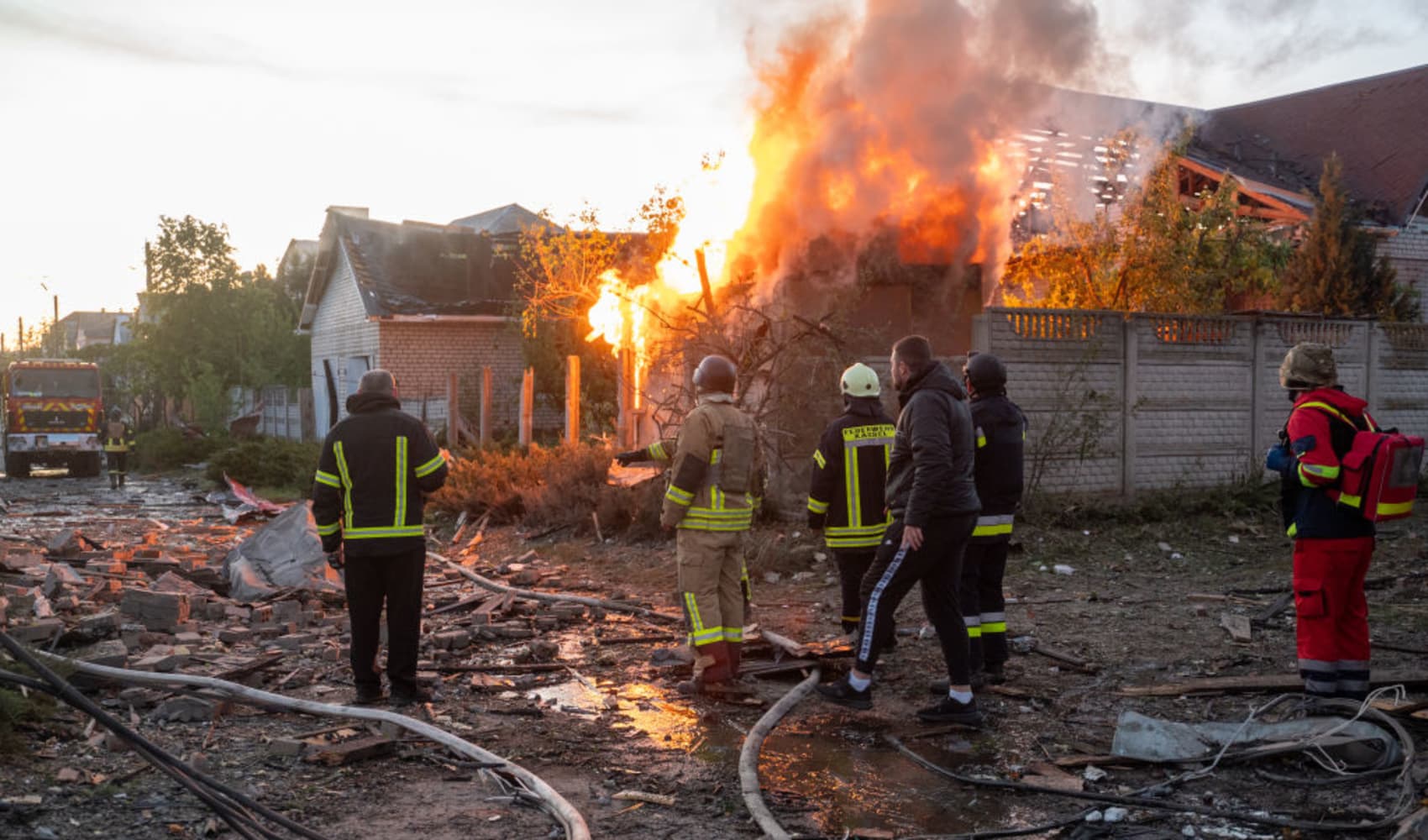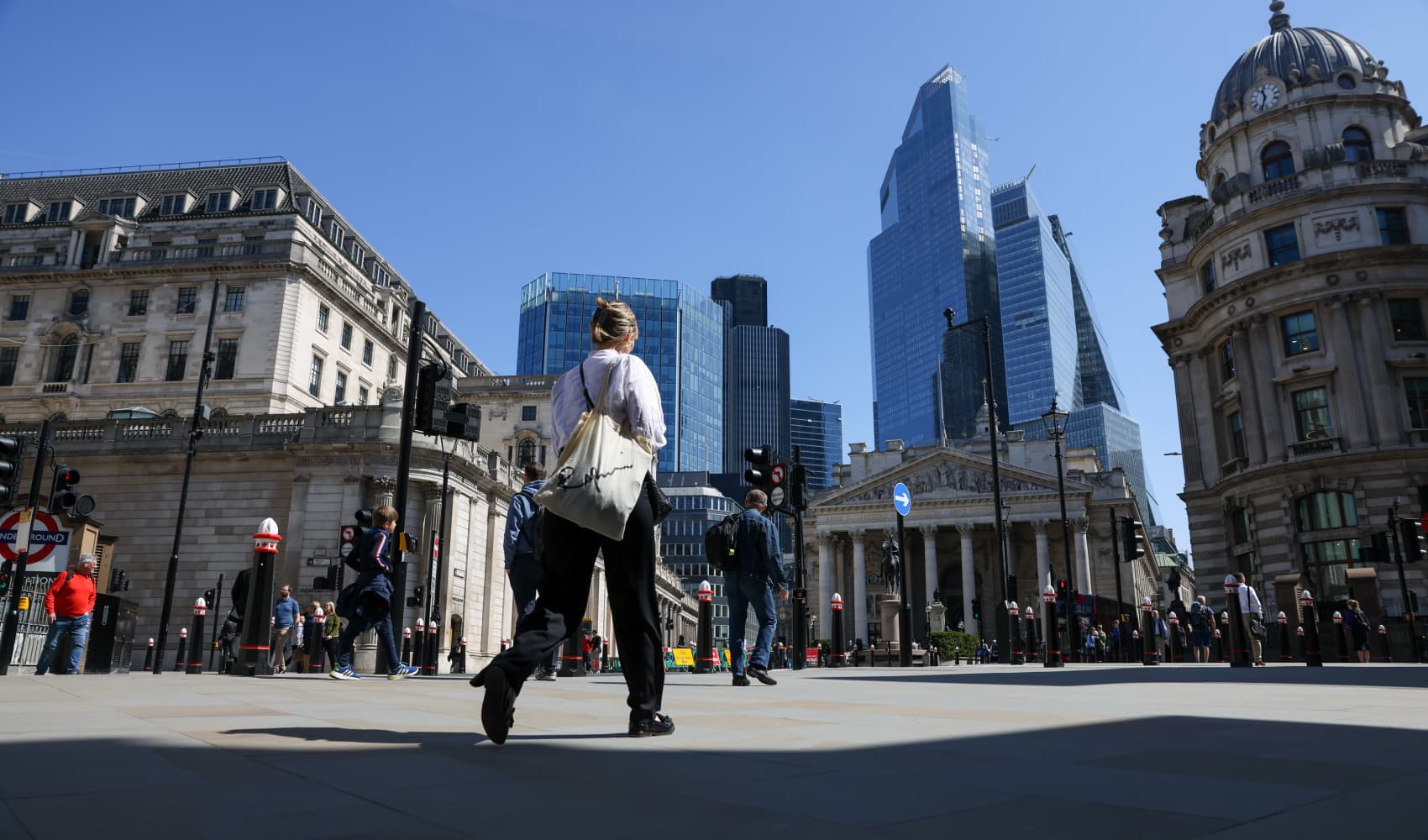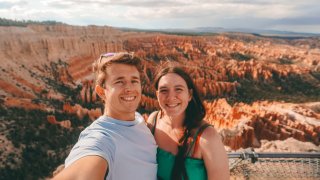
Bradley Williams "absolutely hated" his first job after graduating from college.
The 28-year-old said the office environment wasn't for him — and he quit in three months.
Williams' girlfriend, Cazzy Magennis, had just finished her degree at the University of Exeter, where they met. While their friends were starting their careers in London, Williams and Magennis were unfazed by the social pressures to settle into corporate jobs.
Instead, they decided to backpack to South America, they told CNBC.
Get Connecticut local news, weather forecasts and entertainment stories to your inbox. Sign up for NBC Connecticut newsletters.
An incredible four months followed — they camped overnight in the Amazon rainforest, went paragliding in Bolivia, surfed in Peru and saw the Iguazu Falls in Argentina — which they chronicled on a blog called Dream Big Travel Far.
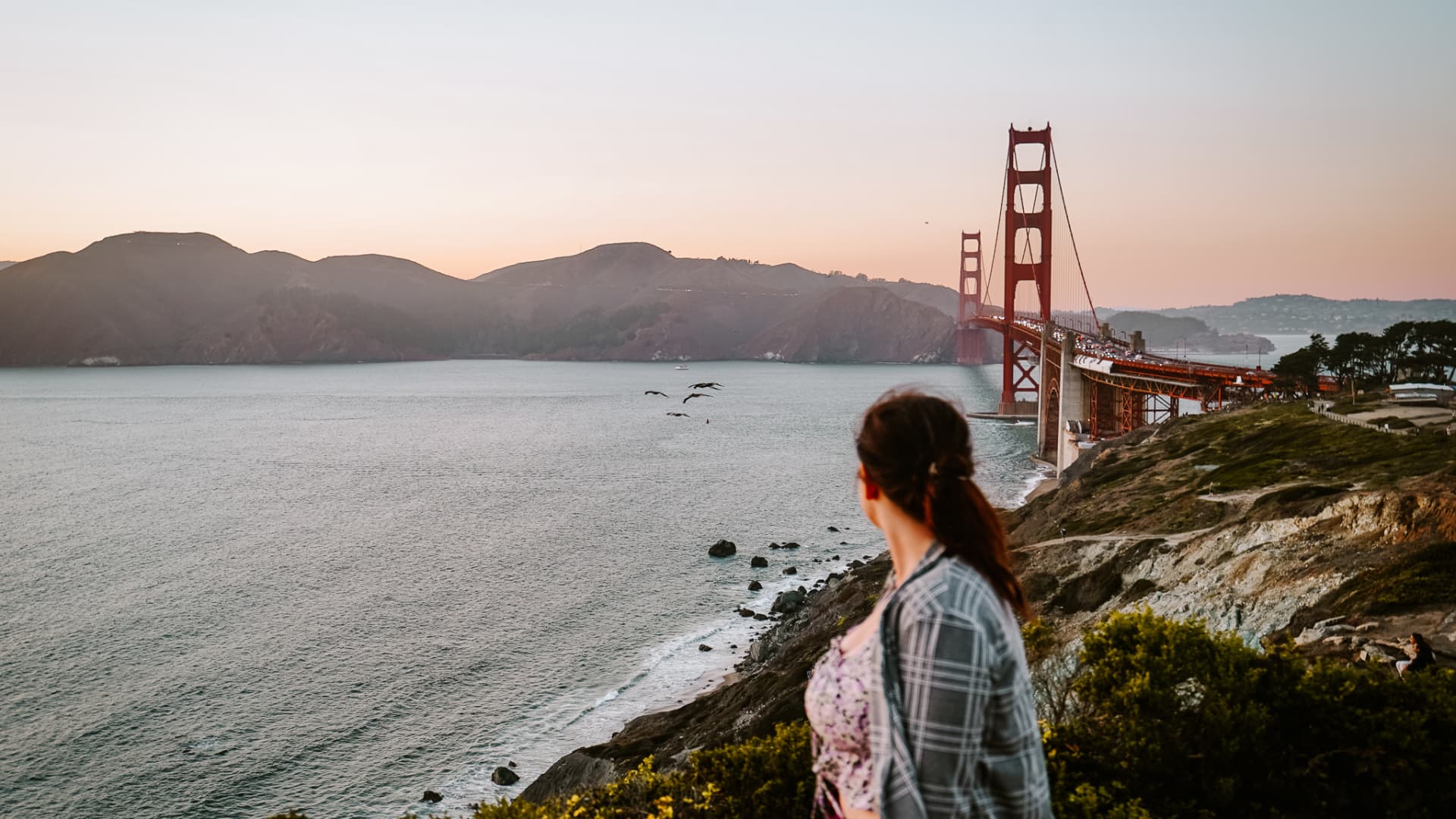
But their money quickly ran out, Williams said.
Money Report
The couple started doing freelance copywriting to make ends meet, which raked in between $1,000 and $1,500 per month each, Magennis said. It was enough to allow them to backpack comfortably through Southeast Asia for 18 months, she said.
They continued to blog, sharing travel tips, itineraries and sample packing lists with their audience. Eventually, they stopped copywriting and dedicated all their time to the blog.
Now, the site draws an average of 250,000 monthly visitors and is on track to earn six figures in annual revenue soon, she said.
"It's a numbers game. You have to be getting thousands of people reading your content before you actually start to make any money," Williams said in a YouTube video about how they make money while traveling.
Their main revenue streams from their travel blog are advertising and affiliate marketing, Williams said in the video. They receive a commission when readers book tours or hotels via links on their blog, he said.
"It's become too big for us to manage on our own," Magennis told CNBC, adding that seven contributing writers help manage the blog.
The couple also has a YouTube channel, but in the video Magennis said the couple don't make much money from it.
"We have made ... $382.85, so take from that what you will," she said on the video with a laugh.
When Covid hit
When Covid hit and travel came to a halt, the blog — their only source of income — took a hit.
"Income kind of just went off a cliff," Williams said. "Everything sort of dried up."
The couple returned to freelance writing to make ends meet, he said.
"The good thing about having our business as a blog is that there aren't any big traditional expenses, like rent," Williams said.
To save money, the couple spent several months living with their families in Northern Ireland and England.
During a four-month stint with Williams' parents, they embarked on a new project — converting a van to live in once borders reopened.
A custom-built van
The couple needed a van that they could use to drive around the world, according to their blog.
To design it, they turned to online advice. "We took inspiration from the many dozens of van tours we watched on YouTube," Magennis said.
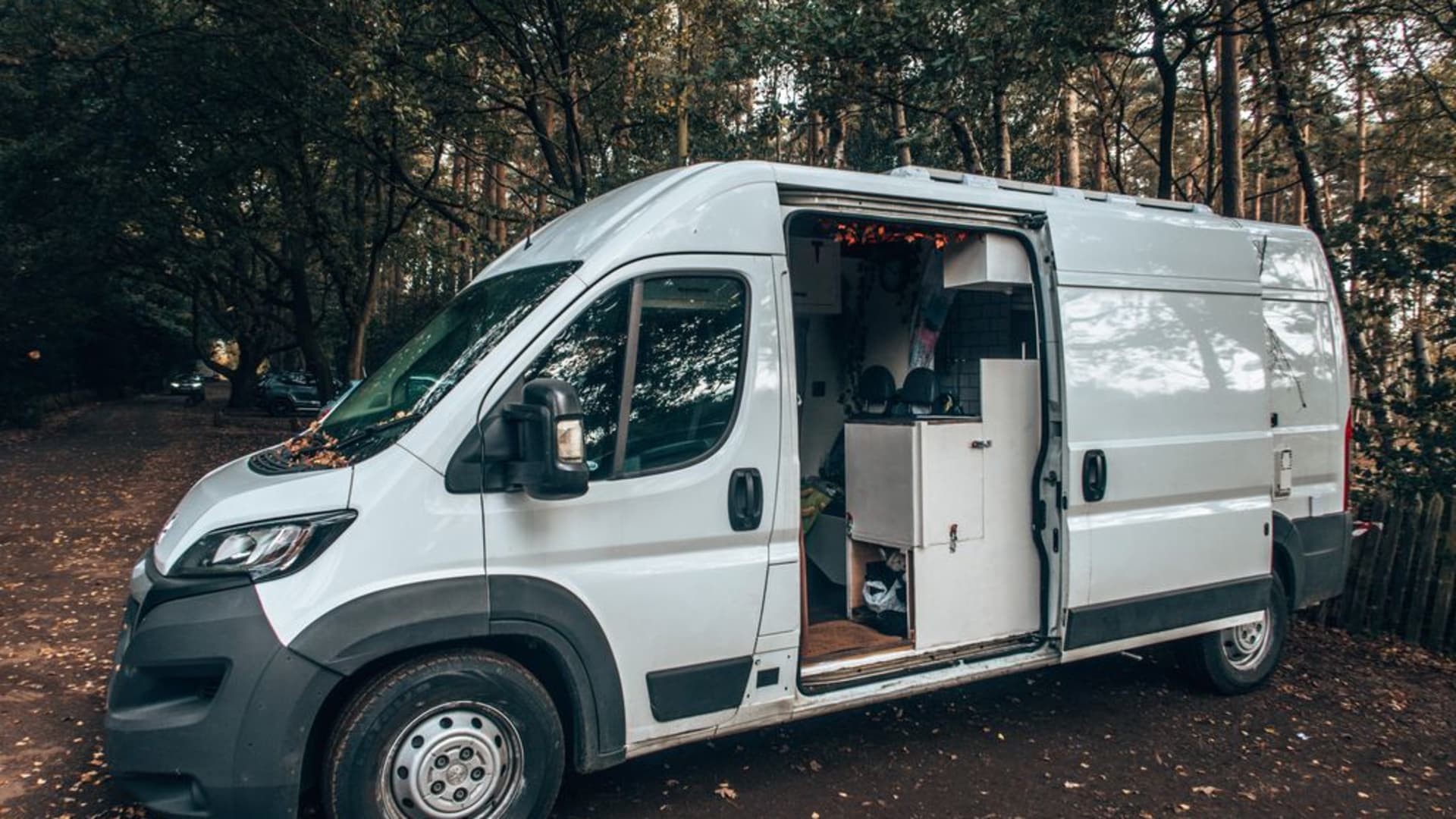
The van, which they named Helen, has many of the utilities of a regular home.
It houses two beds and a seating area for four people, plus a shower, toilet and kitchen area. A 480-watt solar panel on the rooftop powers the electricity.
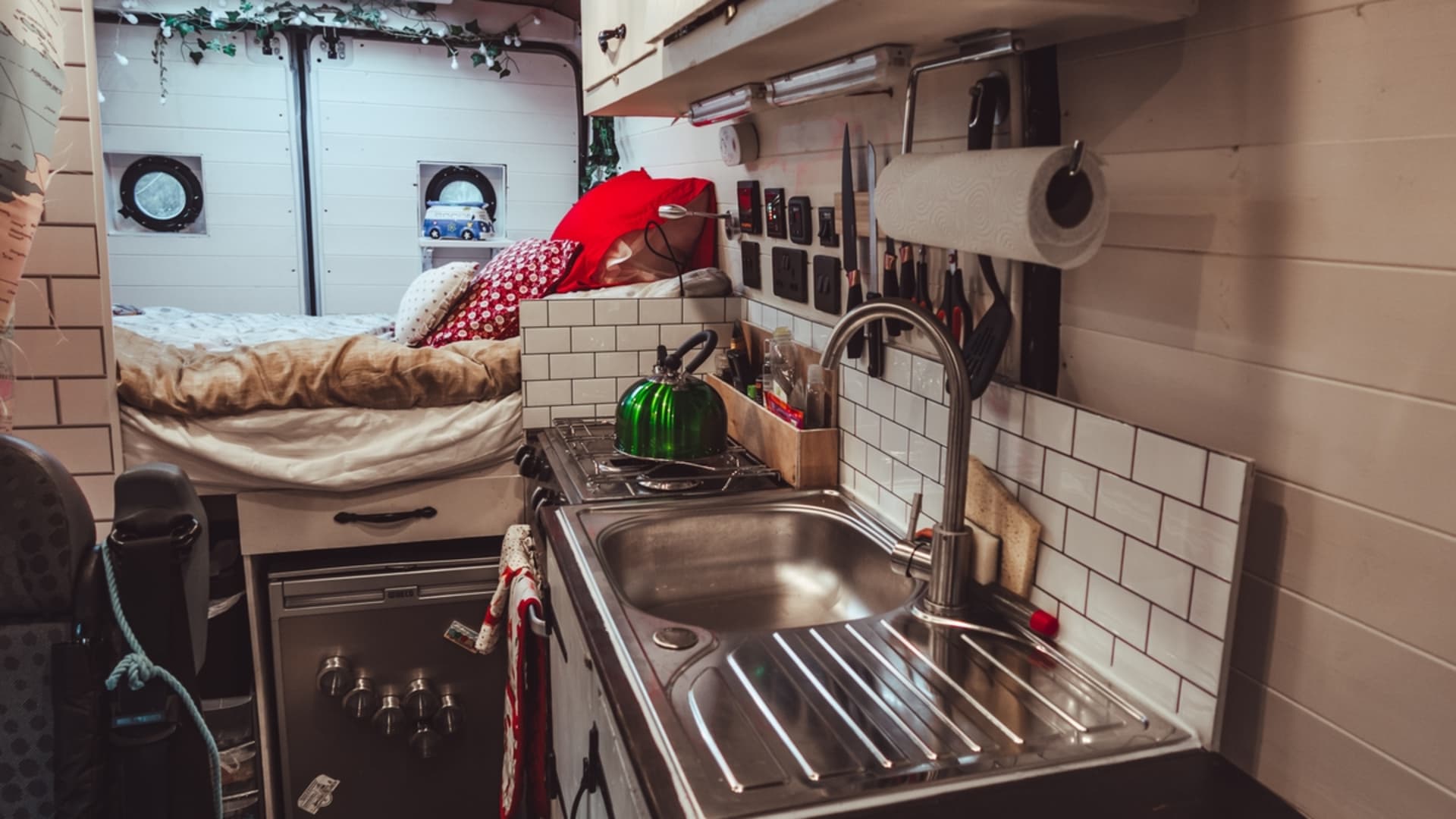
"Most nights we cook in the van," Magennis said. "We have an oven in here, so we can cook everything that you would in a house."
The route
A map on the couple's blog shows the couple's planned driving route. When they spoke to CNBC, they were in the United States.
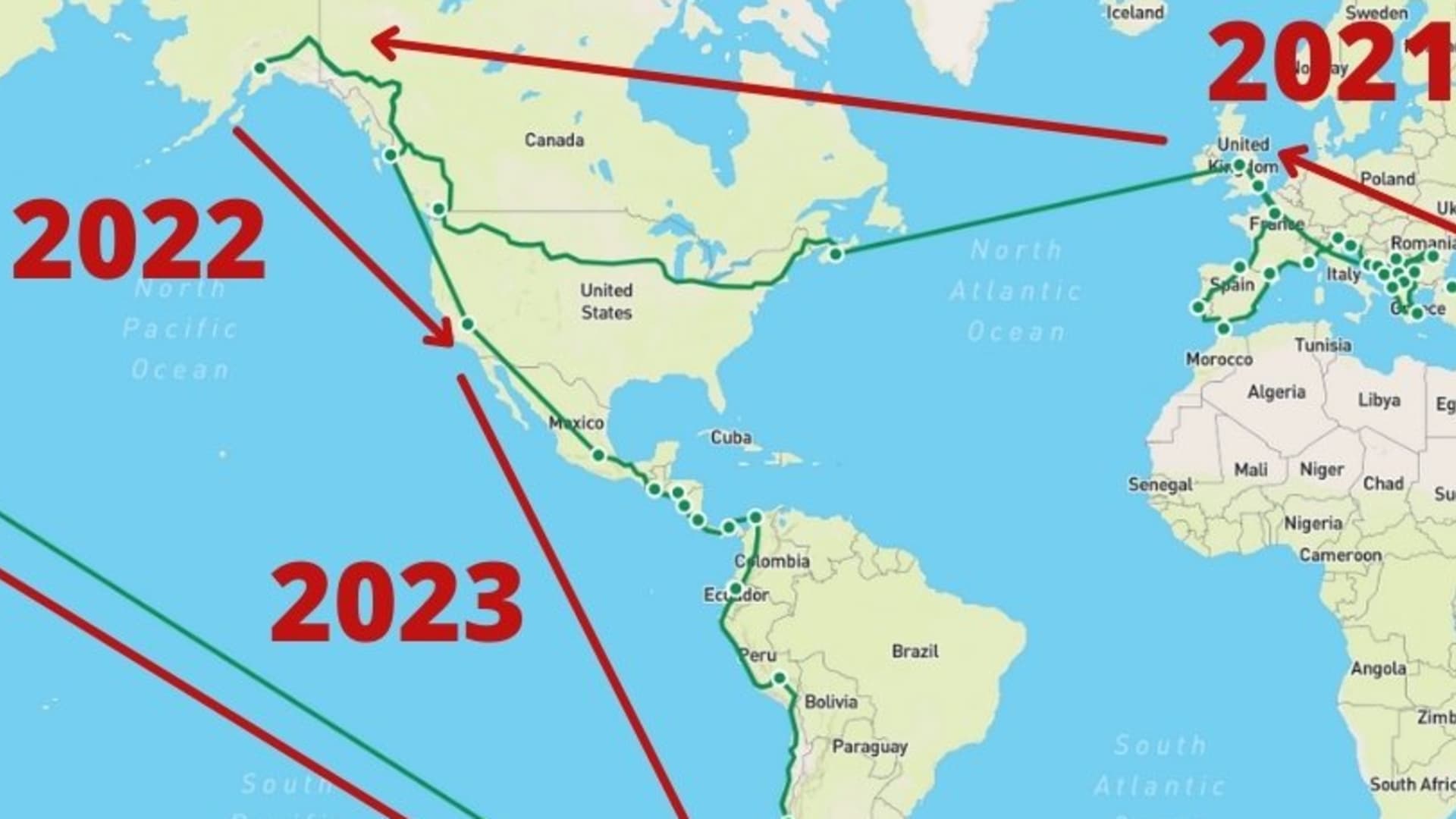
To traverse oceans, the couple fly and ship their van across countries.
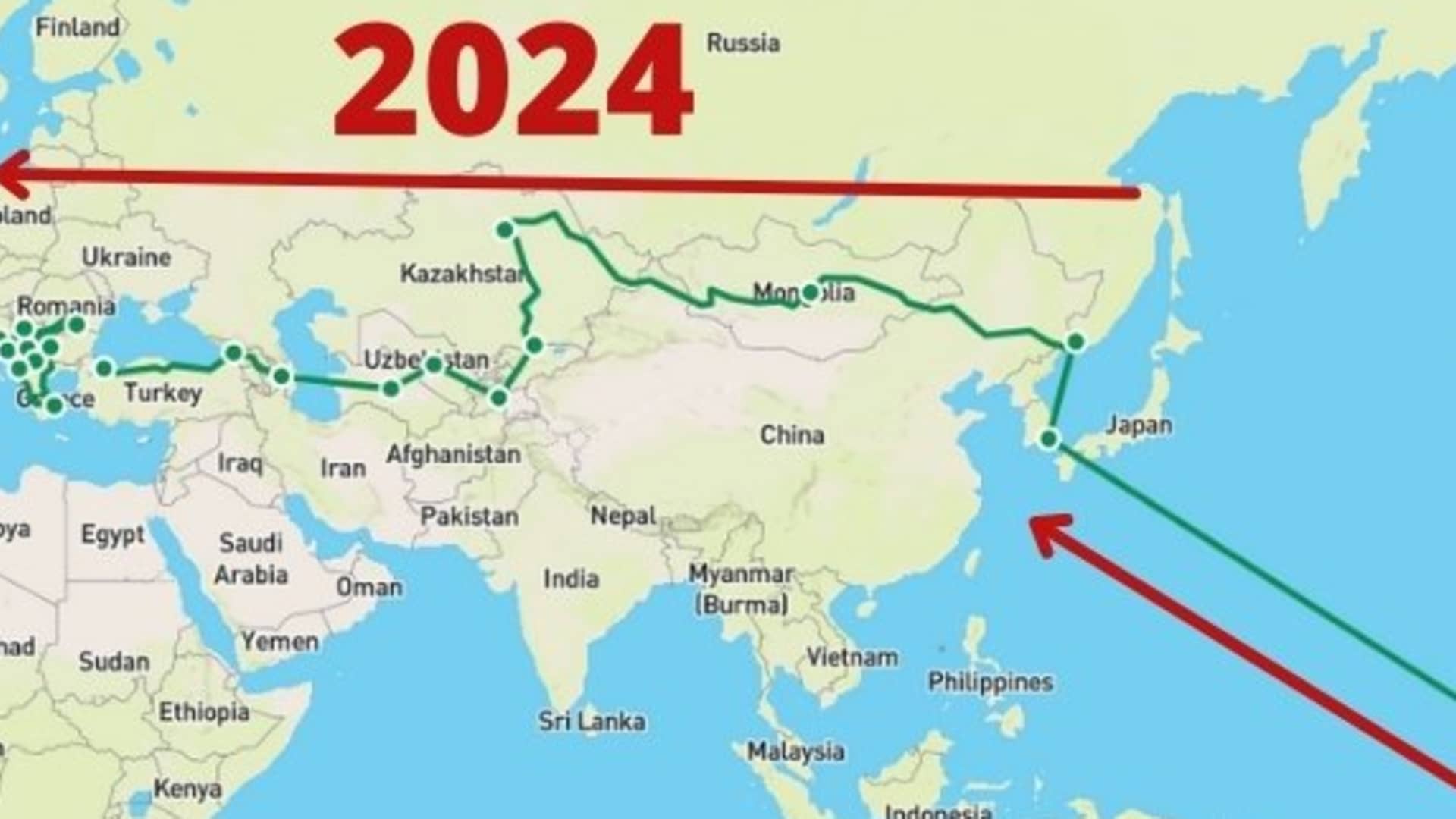
The couple wanted to travel through Russia but the war thwarted their plans, Magennis said.
In another change, they now plan to ship their van from South America to Australia, where they will travel before exploring Asia.
Finally, they will finish the route in Europe, where they began, she said.
Best and worst parts of van life
The best parts about living in a van is that it encourages a minimalistic lifestyle, Williams said.
"You can't have ten pairs of shoes and seven coats — you'll realize that you don't actually need that much," he said.
They love that their home moves with them, he said.
"We can be parked up at the edge of a cliff in the middle of nowhere, but once we shut the doors and put the heater on ... it's a really cozy space to be in," Williams said.
But van life has its downsides too, he said.
"If you're on your own and you're not very sociable, it can become quite lonely," he said.
"Sometimes Instagram paints this picture of van life ... like every night you'll be by this amazing beach with the sun setting ... but a lot of times it'll be howling rain outside," he said. "Or your van breaks down and you have to get repairs done."
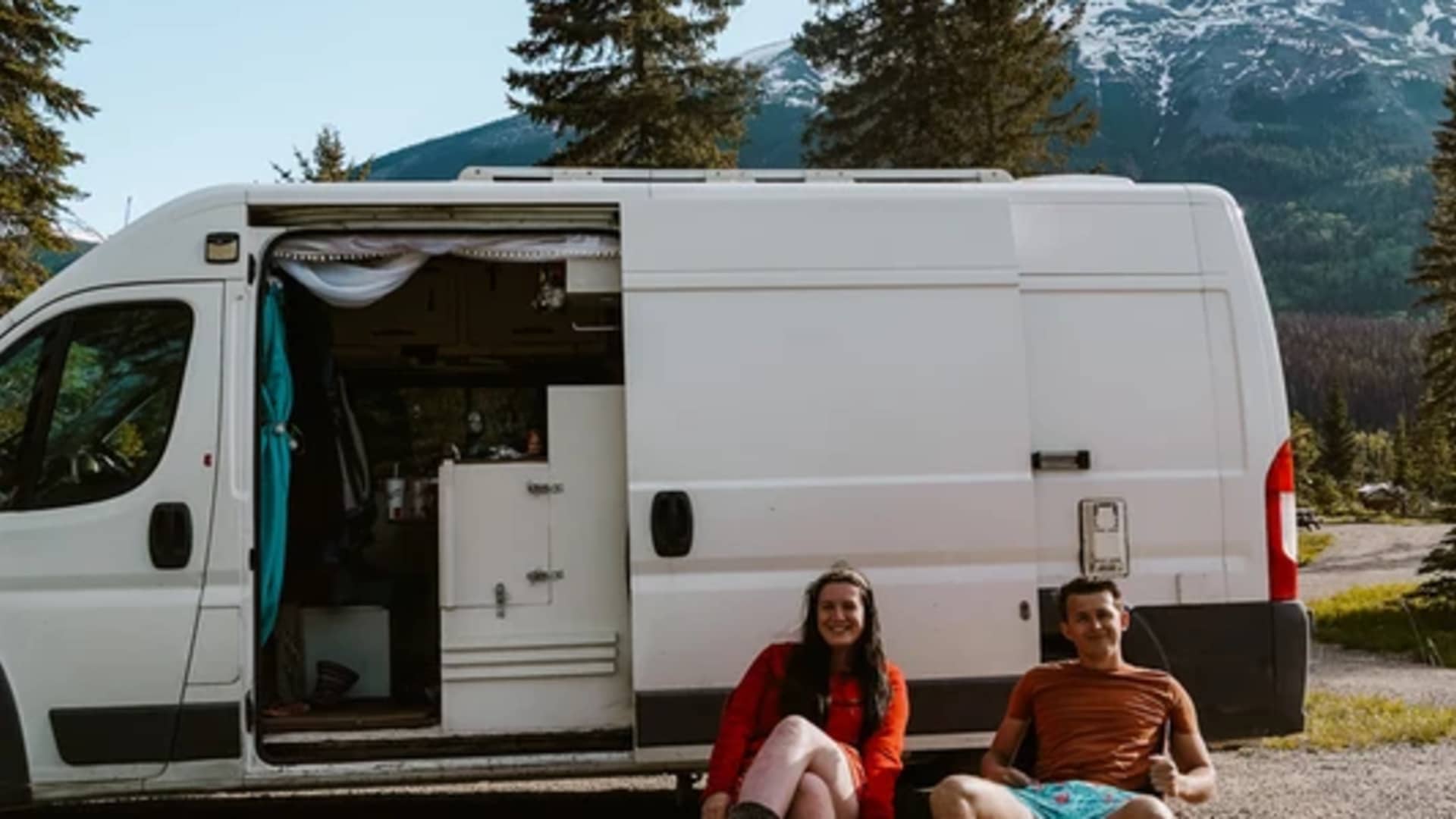
The couple estimate that they spend no more than $2,000 annually on van maintenance.
Dangers lurk on the road as well. They've had their vlogging equipment, projector and clothing stolen while the van was being shipped from the U.K. to Canada, he said.
Someone attempted to break into their van at midnight, he said. Fortunately, the intruder scurried away when Williams came out of the vehicle, he said.
They encourage people interested in van life to try it out first before committing to it full time. "It really isn't for everybody," Williams said, adding that some people may feel claustrophobic.
"We know we love it because we did a few other van trips beforehand," he said.
His top tip? Hire a van first, then "just give it a go."


